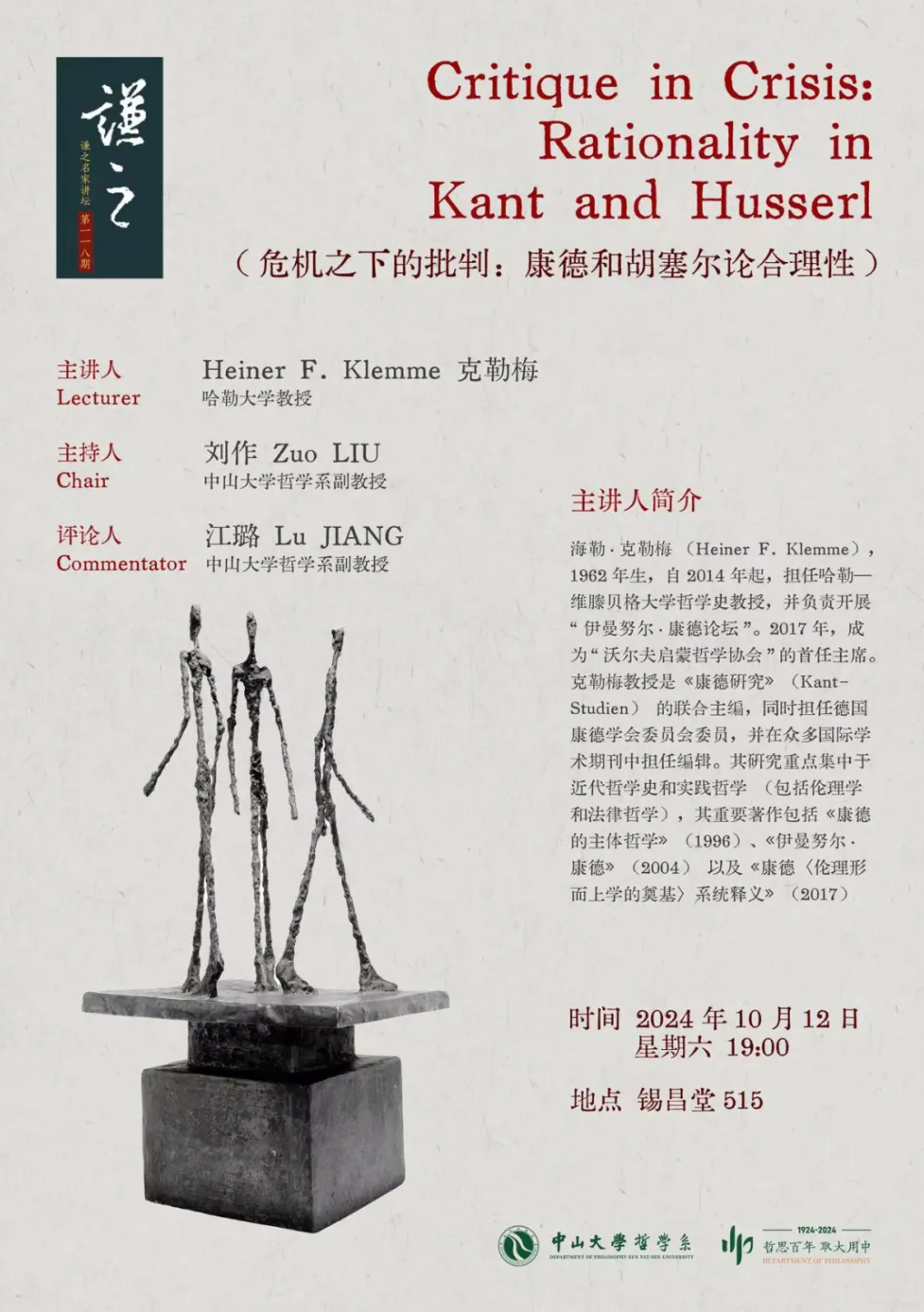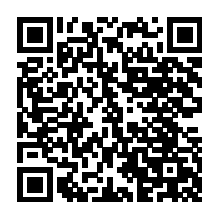谦之名家讲坛预告|Heiner F. Klemme:危机之下的批判:康德和胡塞尔论合理性
Critique in Crisis: Rationality in Kant and Husserl 危机之下的批判:康德和胡塞尔论合理性

Critique in Crisis: Rationality in Kant and Husserl
危机之下的批判:康德和胡塞尔论合理性
主讲人(Lecturer):Prof. Dr. Heiner F. Klemme
主持人(Chair):刘作(Zuo LIU)
评论人(Commentator):江璐(Lu JIANG)
时间:2024年10月12日(星期六)19:00
地点:锡昌堂515
主讲人简介(Introduction to the Lecturer):
Prof. Dr. Heiner F. Klemme,1962年生,现任德国马丁路德-哈勒维腾贝格大学太阳集团城娱8722哲学史教席教授,研究重点为康德哲学、近代哲学、德国启蒙运动、实践哲学等。兼任国际康德学会(Kant-Gesellschaft e. V.)主席会成员、Kant-Studien主编之一、启蒙哲学-沃尔夫学会(Christian-Wolff-Gesellschaft für die Philosophie der Aufklärung )第一主席,另兼任洪堡基金会、德国科研基金会(DFG)、德国学术交流基金会(DAAD)等组织机构的评委。Klemme教授已出版著作5部,编著20余部,论文130余篇,在康德学界拥有非常高的声望,是目前国际公认的十分杰出且活跃的康德学者。
摘要(Abstract):
This article addresses the significance of Kant's critique of reason from the perspective of its philosophical reception using Husserl's The Crisis of European Sciences and Transcendental Philosophy as an example. Kant understands critique as a method whose ultimate goal is to establish metaphysics a science. The scientific character of natural science and mathematics, however, is beyond doubt for Kant. By contrast, Husserl diagnoses a crisis of the "European sciences," which is in fact a crisis of philosophy and European culture in general. To solve this crisis, however, Husserl explicitly avoids critique. The central difference between Kant and Husserl is that, for Husserl, Transcendental Phenomenology is based on the existential and religious belief that the world is rational. The task of philosophy is to make this reason explicit and to lay the foundations for a "genuine rationalism." For Kant, on the other hand, it is not faith that leads to reason but vice versa. For Kant, the task of critique is to show how we can preserve ourselves as rational beings. Man is more than a machine.


